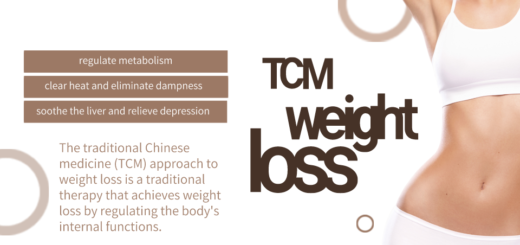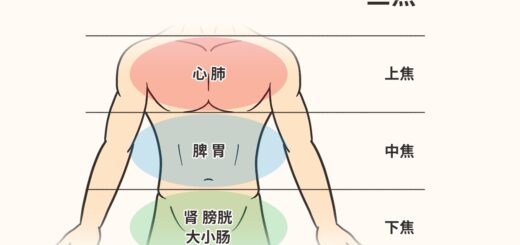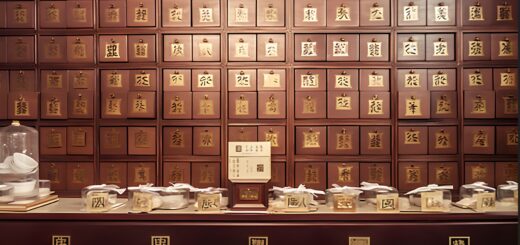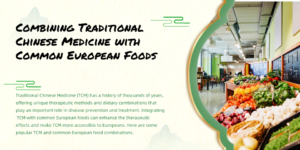Combining Traditional Chinese Medicine with Common European Foods
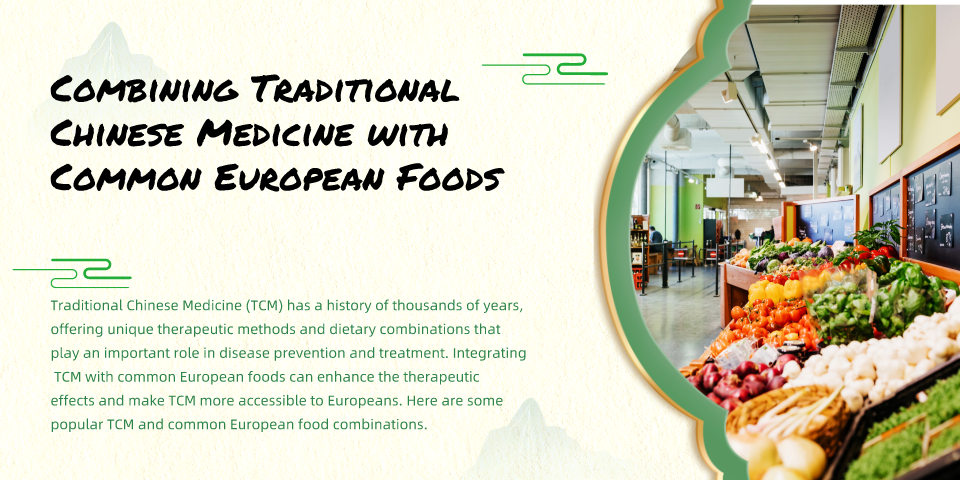
Traditional Chinese Medicine (TCM) has a history of thousands of years, offering unique therapeutic methods and dietary combinations that play an important role in disease prevention and treatment. Integrating TCM with common European foods can enhance the therapeutic effects and make TCM more accessible to Europeans. Here are some popular TCM and common European food combinations.
1. Ginseng with Chicken Soup
Ginseng is a well-known tonic herb that enhances immunity, reduces fatigue, and improves memory. Combining it with chicken soup can boost its nourishing effects, making it particularly suitable for individuals with weakened bodies and low immunity【1】.
2. Goji Berries with Porridge
Goji berries are rich in vitamins and antioxidants, helping to protect the eyes and boost immunity. Adding goji berries to porridge can enhance its nutritional value and provide ample antioxidants, making it an ideal breakfast choice【2】.
3. Angelica Root with Ginger Tea
Angelica root has blood-tonifying, menstrual-regulating, and bowel-moistening properties, often used for treating menstrual irregularities and anemia in women. Ginger tea, on the other hand, has warming properties. Adding angelica root to ginger tea can enhance blood-tonifying and warming effects, especially suitable for winter consumption【3】.
4. Cordyceps with Beef Stew
Cordyceps is considered a precious tonic herb that nourishes the lungs and kidneys and stops bleeding and phlegm. Combining it with beef stew can help nourish the lungs and is suitable for individuals with chronic cough and weakness【4】.
5. Job’s Tears with Brown Rice
Job’s tears have spleen-strengthening, dampness-removing, and heat-clearing properties. Brown rice is rich in fiber and nutrients, aiding digestion and overall health. Cooking Job’s tears with brown rice can effectively clear heat, reduce swelling, and promote diuresis, making it a suitable daily staple【5】.
Precautions
While combining TCM with foods can enhance therapeutic effects, individual differences and contraindications must be considered. Some TCM herbs are potent and may not be suitable for everyone; certain food and herb combinations might also cause adverse reactions. Therefore, it is advisable to consult a professional TCM practitioner when incorporating TCM into dietary practices.
Conclusion
The reasonable combination of TCM and diet can not only enhance therapeutic effects but also promote overall health. By scientifically combining these methods, we can maximize the benefits of TCM, making it a valuable addition to daily health practices.

